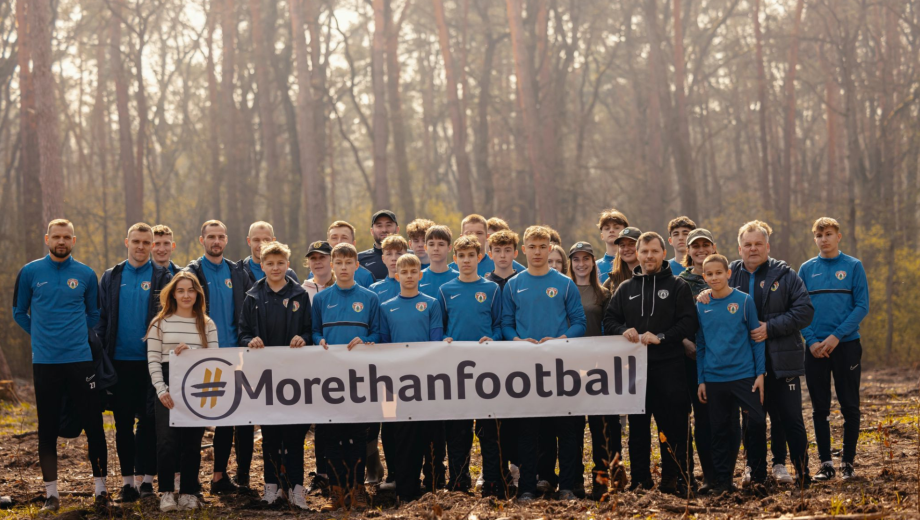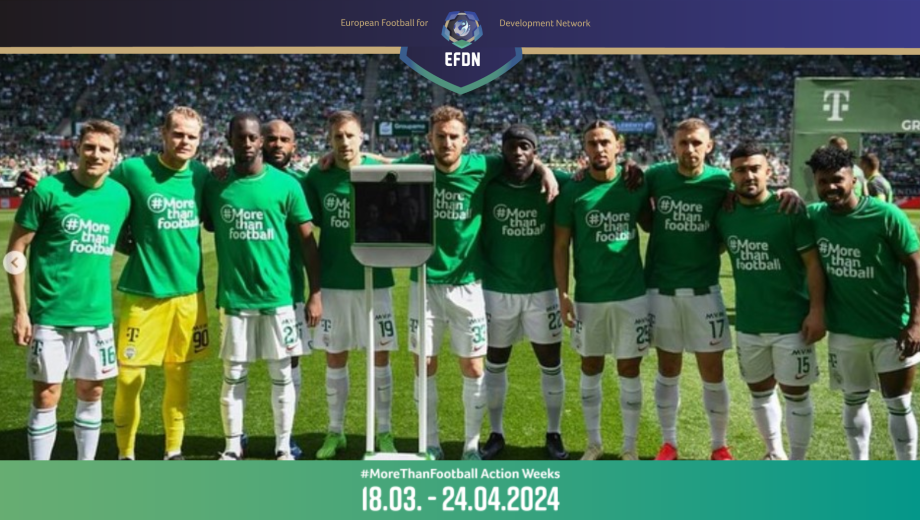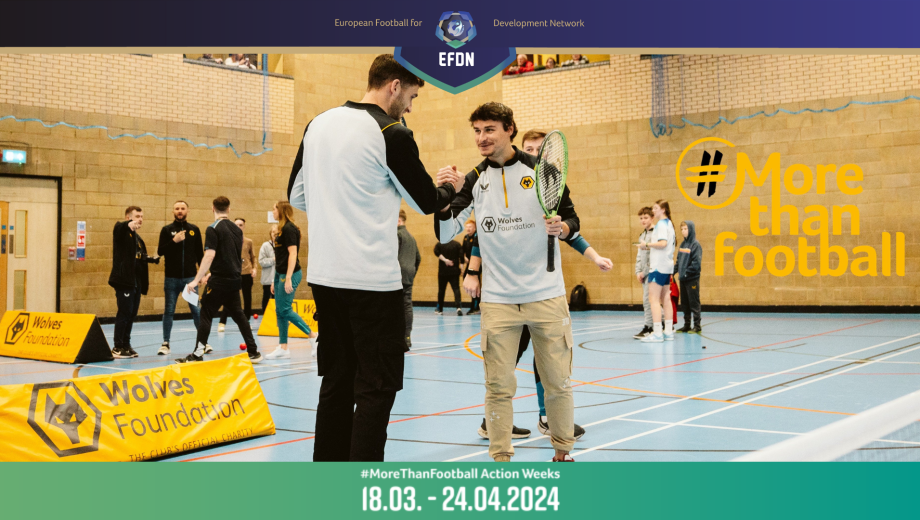Sport EYE Project Meeting: Progress and Collaboration Highlighted
On October 6, in a meeting of the SportEYE project, partners gathered to discuss the latest developments and future plans for this ambitious initiative aimed at promoting sustainable practices in sports organizations. The meeting, held in Breda, showcased the commitment of all involved parties to advancing the project’s goals.
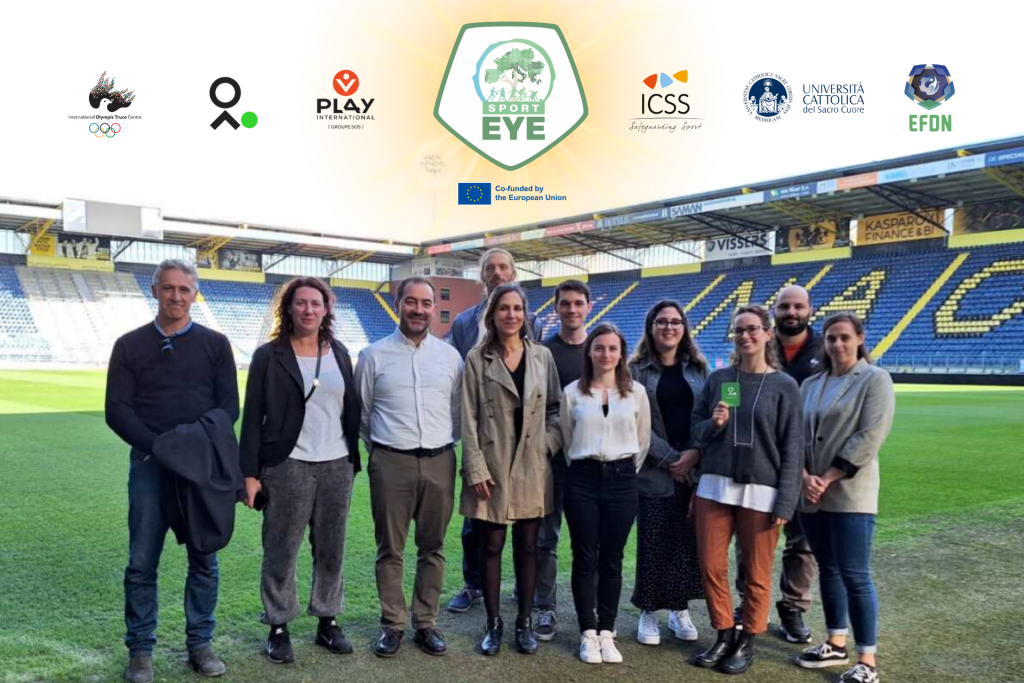
Welcoming and Presentations
The meeting commenced with EFDN extending a warm welcome to all attendees, setting the stage for the following discussions, introducing Breda as the meeting’s host city and touching upon the logistical aspects of the gathering. IOTC provided insights into the project’s work plan, highlighting the completion of Work Package 2 (WP2).
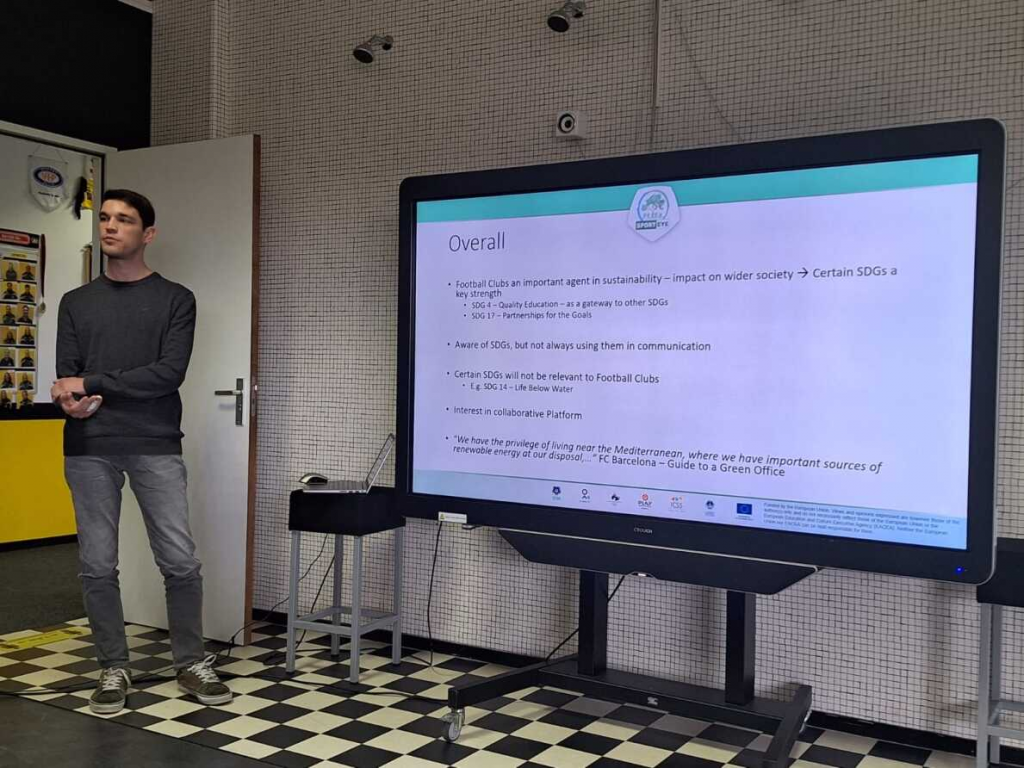
Research
UCSC took the floor to present the progress made in WP2’s research phase. Partners were given additional time to collect information specific to their territories. UCSC then shared insights into the research methodology, work accomplished so far, and some preliminary results, including best practices.
Representatives from various organizations, including Futbol Mas, ICSS, PLAY International, EFDN, and IOTC, discussed their contributions to WP2, sharing figures and insights from focus groups, and challenges encountered. The group aimed to reach a target of 50 sports organisations, with final reports expected by the end of October.
For example, PLAY International conducted 9 interviews with varying sporting organisations, including one EFDN member: Olympique Lyonnais. Furthermore, ICSS presented initiatives from an EFDN member in its Focus Group Report: Sport Clube União Torreense.
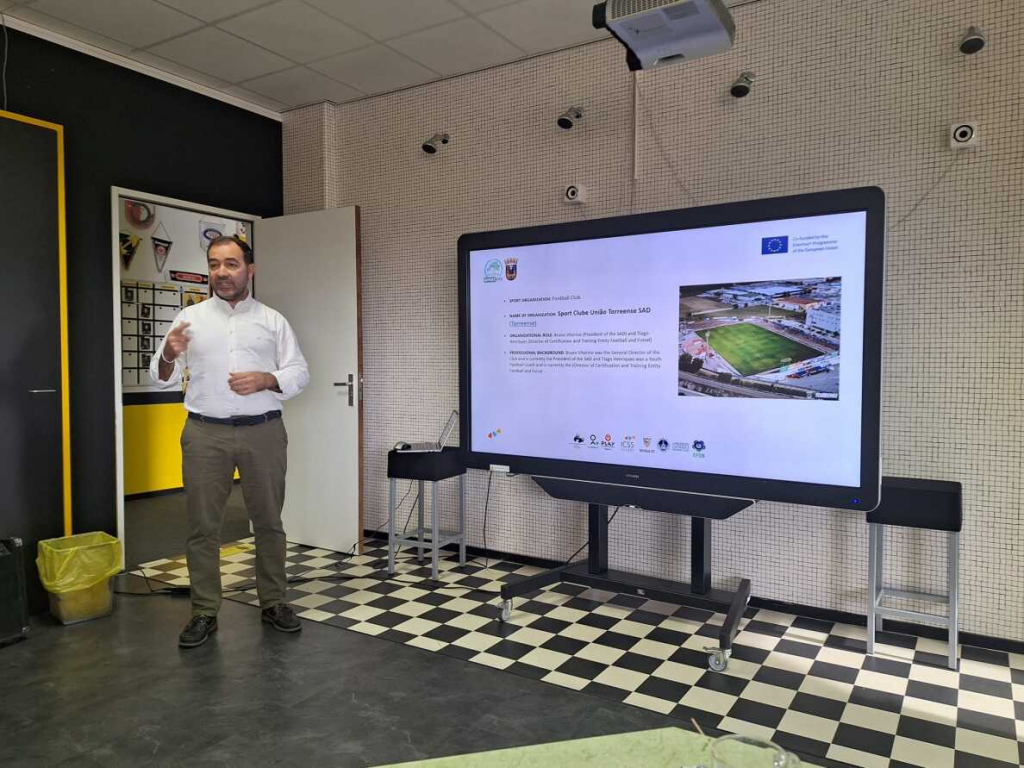
Policy Recommendations
ICSS presented the plan for WP4, which focuses on policy recommendations. ICSS would draft an initial version of these recommendations, which would then be shared with partners for feedback and comments. After incorporating these inputs, a second version of the document would be created and shared for final approval.
Dissemination
EFDN provided an overview of WP5, emphasizing that the project website and the first digital leaflet had already been submitted. Partners were encouraged to contribute content for publication on the website or social media platforms. EFDN also shared links to various project deliverables and discussed additional communication objectives.
Management
IOTC, leading WP1, presented the status of the continuous reporting tool for SportEYE, and elaborated on reporting periods, budget control, and overall project management.
Implementation
FutbolMas and PLAY International outlined the plans for WP3, which focuses on implementation. She highlighted that the educational package would be consistent for both managers and coaches, consisting of theoretical content, the benefits of using Sustainable Development Goals (SDGs), guidelines, and practical examples. The toolkit would focus on implementing this educational package.
Scheduling the Next Meeting
The meeting concluded with discussions about scheduling the next partner meeting, tentatively set in Paris, pending confirmation from Play International.
In summary, the SportEYE project meeting showcased progress made across various work packages and demonstrated the commitment of partners to its successful realization. Collaboration and dedication remained strong as partners worked collectively towards the project’s goals and objectives.
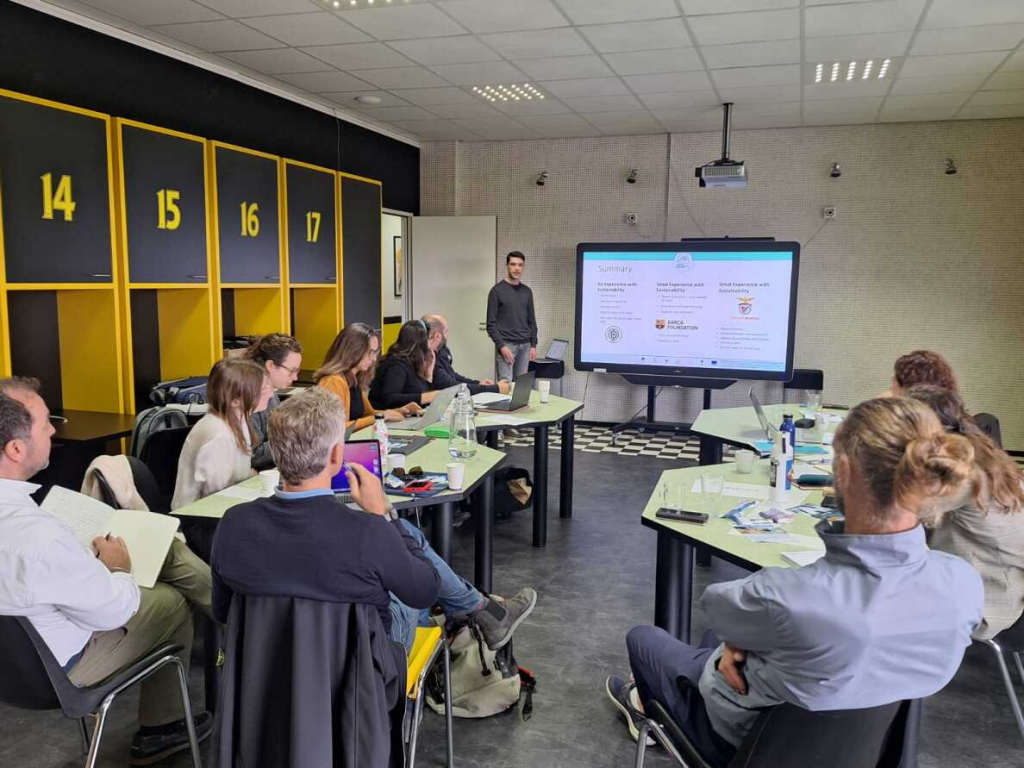
SportEYE
“Empowering Your Sport Club, Children and Youth for the Environment in the Mediterranean Region” also know as “SportEYE” is an Erasmus+ funded initiative by the European Union that promotes transnational cooperation. It involves partners from various sectors, including the Olympic Movement, Sport for Development, Academia, and civil society. The project focuses on the European Mediterranean region, which is facing environmental challenges due to sustainability issues. SportEYE aims to engage local communities to enhance the governance and impact of team sports clubs on Sustainable Development Goals (SDGs). This is achieved through a multilevel curriculum that targets management, coaching staff, and young participants, fostering environmental awareness and sustainability.

DFB – Football United Against Racism
DFB Foundations Programmes

